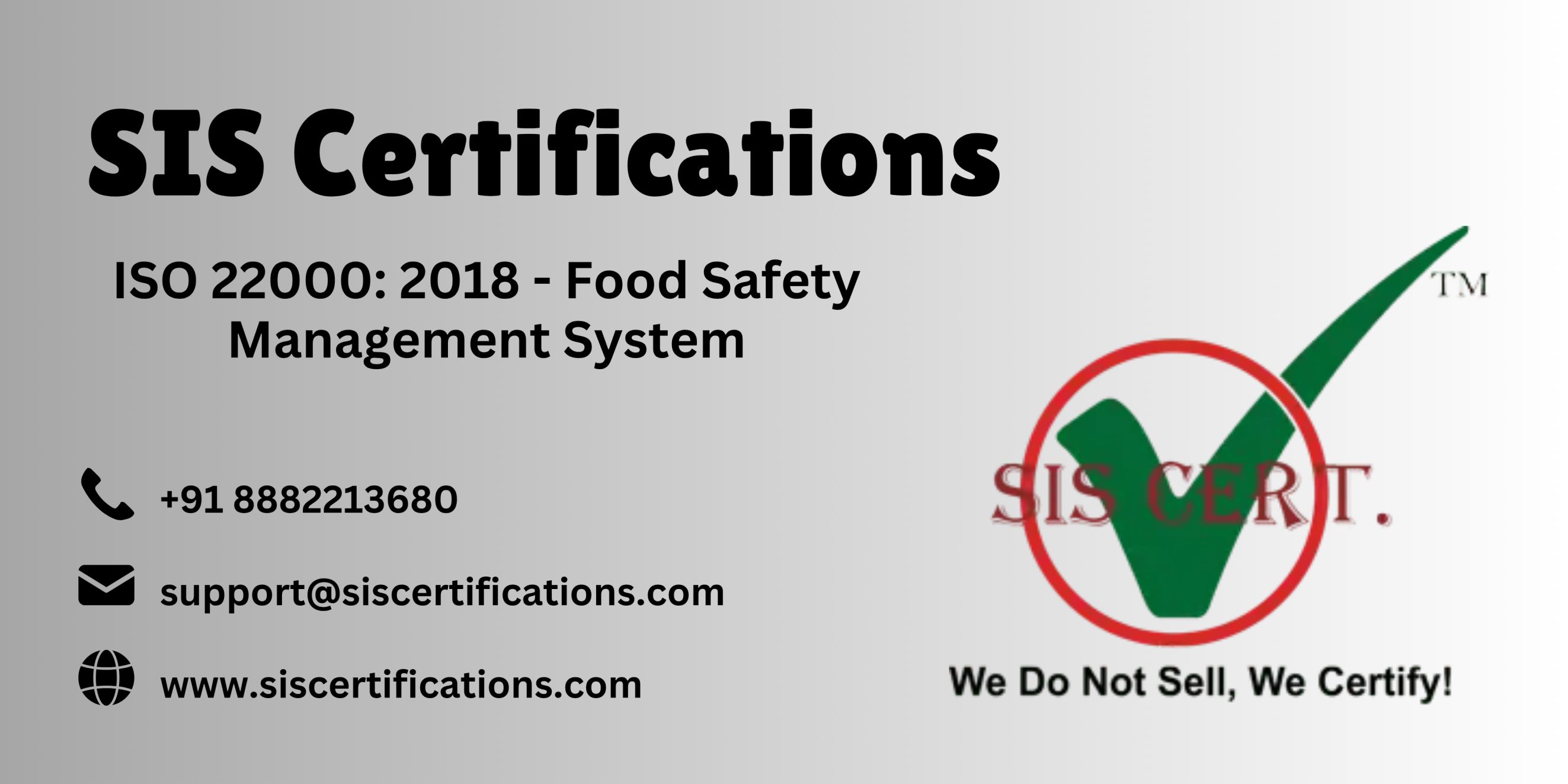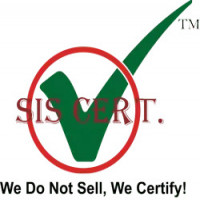ISO 22000 Certification: Ensuring Food Safety Excellence

Strong 8k brings an ultra-HD IPTV experience to your living room and your pocket.
Overview of ISO 22000 Certification
ISO 22000 Certification is an international standard designed to ensure food safety across the entire food supply chain, from production to consumption. Developed by the International Organization for Standardization (ISO), it provides a framework for organizations to implement, maintain, and continuously improve their food safety management systems. The standard is applicable to all types of organizations involved in the food chain, including manufacturers, processors, distributors, retailers, and catering services.
The primary goal of ISO 22000 Certification is to ensure that food is safe for consumption by identifying and controlling potential hazards at every stage of the supply chain. It integrates the principles of Hazard Analysis and Critical Control Points (HACCP) with other management system elements, such as risk assessment and continuous improvement. By achieving ISO 22000 Certification, businesses demonstrate their commitment to food safety, gain a competitive edge, and build trust with consumers and stakeholders.
This certification is particularly valuable in a globalized market where food products cross borders, and regulatory compliance varies. It provides a unified standard that ensures consistency, traceability, and accountability, making it easier for organizations to meet both local and international food safety requirements.
ISO 22000 Certification Cost
The cost of obtaining ISO 22000 Certification varies depending on several factors, including the size and complexity of the organization, the scope of the food safety management system, and the certification body chosen. Below are the key cost components associated with ISO 22000 Certification:
Gap Analysis and Preparation: Before pursuing certification, organizations often conduct a gap analysis to assess their current food safety practices against ISO 22000 requirements. This step may involve hiring consultants, which can cost between $2,000 and $10,000, depending on the organization’s size and needs.
Training: Employees need training to understand and implement ISO 22000 standards. Training costs can range from $500 to $5,000, depending on the number of employees and the depth of the training program.
Documentation and Implementation: Developing a compliant FSMS requires creating documented procedures, policies, and records. This process may involve internal resources or external consultants, costing anywhere from $1,000 to $15,000.
Certification Audit Fees: The certification body conducts audits to verify compliance. Audit fees depend on the organization’s size, complexity, and location, typically ranging from $5,000 to $20,000 for small to medium-sized businesses.
Maintenance and Surveillance Audits: After certification, organizations must undergo annual surveillance audits to maintain compliance, which can cost $1,000 to $5,000 per year. Recertification audits, conducted every three years, may cost slightly more.
Miscellaneous Costs: Additional expenses may include software for managing the FSMS, internal audits, and corrective actions, which can add $1,000 to $5,000 to the total cost.
While the initial investment may seem significant, ISO 22000 Certification offers long-term benefits, such as reduced risk of food safety incidents, improved operational efficiency, and enhanced marketability. Organizations should view these costs as an investment in quality, safety, and brand reputation.
ISO 22000 Certifications
ISO 22000 Certification is a single standard, but it is part of a broader family of ISO standards related to quality and safety management. It integrates seamlessly with other standards, such as ISO 9001 (Quality Management) and ISO 14001 (Environmental Management), allowing organizations to create a comprehensive management system. However, ISO 22000 Certification specifically focuses on food safety and is tailored to the unique challenges of the food industry.
There are no distinct “types” of ISO 22000 Certification, as the standard applies universally to all organizations in the food supply chain. However, the scope of certification can vary. For example, a small bakery may certify its production process, while a multinational food manufacturer may certify its entire supply chain, including sourcing, processing, and distribution.
Some organizations pursue additional certifications, such as FSSC 22000, which builds on ISO 22000 by incorporating additional requirements for specific industries. While FSSC 22000 is not a replacement for ISO 22000 Certification, it may be preferred by organizations seeking recognition from specific regulatory bodies or retailers.
ISO 22000 Certification Requirements
To achieve ISO 22000 Certification, organizations must meet specific requirements outlined in the standard. These requirements ensure that the FSMS is robust, effective, and capable of preventing food safety hazards. Key requirements include:
Food Safety Management System (FSMS): Establish a documented FSMS that outlines policies, objectives, and procedures for ensuring food safety.
Management Responsibility: Top management must demonstrate commitment by defining food safety policies, allocating resources, and ensuring effective communication throughout the organization.
Resource Management: Provide adequate resources, including trained personnel, infrastructure, and technology, to implement and maintain the FSMS.
Hazard Analysis and Critical Control Points (HACCP): Conduct a hazard analysis to identify potential biological, chemical, and physical hazards and establish critical control points (CCPs) to mitigate risks.
Prerequisite Programs (PRPs): Implement PRPs, such as hygiene practices, pest control, and equipment maintenance, to create a safe environment for food production.
Monitoring and Measurement: Establish procedures to monitor CCPs, verify the effectiveness of the FSMS, and conduct internal audits.
Continuous Improvement: Take corrective actions to address non-conformities and continuously improve the FSMS based on audit findings and performance data.
Compliance with these requirements ensures that organizations can prevent, eliminate, or reduce food safety risks, protecting consumers and enhancing operational efficiency.
ISO 22000 Certification Process
The ISO 22000 Certification process involves several steps, typically taking 6 to 12 months, depending on the organization’s readiness. Below is an overview of the process:
Gap Analysis: Conduct a gap analysis to identify areas where the organization’s current practices fall short of ISO 22000 requirements. This step helps create a roadmap for compliance.
FSMS Development: Develop and document the FSMS, including policies, procedures, and HACCP plans. This step may involve training employees and updating processes.
Implementation: Put the FSMS into action across all relevant operations. Ensure employees are trained and aware of their roles in maintaining food safety.
Internal Audit: Conduct an internal audit to verify that the FSMS is effective and compliant with ISO 22000 standards. Address any non-conformities identified during the audit.
Management Review: Hold a management review meeting to evaluate the FSMS’s performance and ensure it aligns with organizational objectives.
Certification Audit: Engage an accredited certification body to perform a two-stage audit:
Stage 1: The certification body reviews documentation to ensure it meets ISO 22000 requirements.
Stage 2: The certification body conducts an on-site audit to verify implementation and compliance.
Certification Decision: If the audit is successful, the certification body issues the ISO 22000 Certification, valid for three years, subject to annual surveillance audits.
Ongoing Maintenance: Conduct regular internal audits, surveillance audits, and continuous improvements to maintain certification.
By following this process, organizations can achieve and sustain ISO 22000 Certification, ensuring long-term food safety compliance.
ISO 22000 Standard
The ISO 22000 Standard is a comprehensive framework that combines key elements of food safety management. First published in 2005 and updated in 2018, the standard aligns with other ISO management system standards, adopting the High-Level Structure (HLS) for easier integration. The key components of the ISO 22000 Standard include:
Context of the Organization: Understand the organization’s internal and external factors that affect food safety, such as regulatory requirements and customer expectations.
Leadership: Ensure top management provides leadership and commitment to the FSMS.
Planning: Identify risks and opportunities, set food safety objectives, and develop plans to achieve them.
Support: Provide resources, training, and communication channels to support the FSMS.
Operation: Implement HACCP principles, PRPs, and operational controls to manage food safety risks.
Performance Evaluation: Monitor, measure, and evaluate the FSMS’s performance through audits and reviews.
Improvement: Take corrective actions and pursue continuous improvement to enhance food safety.
The 2018 update introduced a stronger focus on risk-based thinking and alignment with other ISO standards, making it easier for organizations to integrate ISO 22000 Certification with existing management systems.
FAQs
Q1: What is ISO 22000 Certification?
ISO 22000 Certification is an international standard that outlines requirements for a food safety management system, ensuring safe food production and handling across the supply chain.
Q2: Who can apply for ISO 22000 Certification?
Any organization in the food supply chain, including producers, processors, distributors, and retailers, can apply for ISO 22000 Certification.
Q3: How long does it take to get ISO 22000 Certification?
The process typically takes 6 to 12 months, depending on the organization’s size, complexity, and readiness.
Q4: How long is ISO 22000 Certification valid?
The certification is valid for three years, with annual surveillance audits to ensure ongoing compliance.
Q5: Can ISO 22000 Certification be integrated with other standards?
Yes, ISO 22000 aligns with standards like ISO 9001 and ISO 14001, allowing organizations to create an integrated management system.
Conclusion
ISO 22000 Certification is a powerful tool for organizations in the food industry to ensure safety, compliance, and consumer trust. By implementing a robust food safety management system, businesses can mitigate risks, enhance operational efficiency, and gain a competitive edge in the global market. While the certification process requires investment in time and resources, the long-term benefits—such as improved brand reputation and reduced food safety incidents—far outweigh the costs. Whether you’re a small business or a multinational corporation, pursuing ISO 22000 Certification is a strategic step toward excellence in food safety.
Note: IndiBlogHub features both user-submitted and editorial content. We do not verify third-party contributions. Read our Disclaimer and Privacy Policyfor details.


